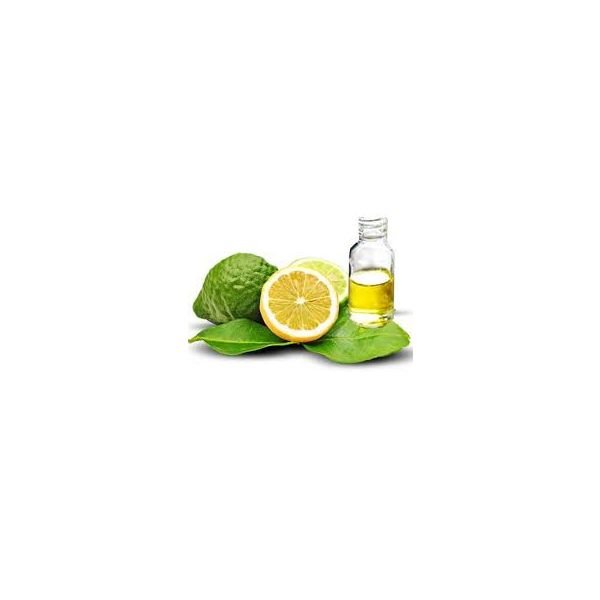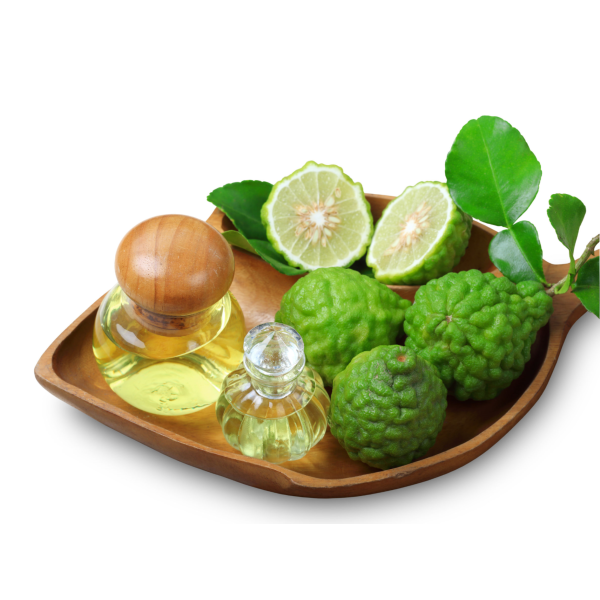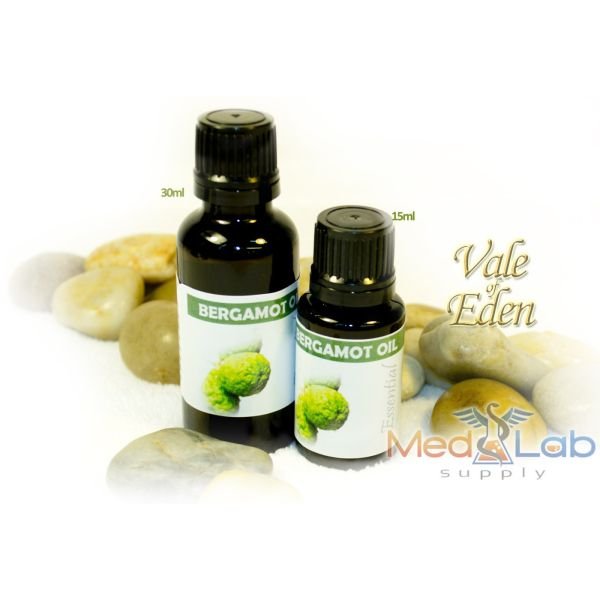The Bergamot tree is native to Southeast Asia and introduce to Europe particularly to Italy in later years. The name Bergamot is derived from Bergamo a city in Lombardy Italy where it was first sold. Today 80% is produce in southern Calabria (Italy). It is also grown in France, the Ivory Coast, and Southern Turkey, where it is also known as “prince of pears”. Bergamot is believed to be a hybrid of sweet lemon and bitter orange. Known and used in Europe to reduce feelings of stress and aiding in calming and uplifting mood.
Bergamot is highly used in perfumery. A third of all men’s perfumes and about half of women’s contain Bergamot Essential Oil. Bergamot Essential oil was the main component of the original Eau de Cologne developed by Jean Maria Fatina in Germany.
Bergamot essential oil has gained popularity in skin care due to its cooling and refreshing nature and is used to help rejuvenate skin, calm inflamed skin and other skin conditions such as psoriasis. Its antiseptic properties help ward infection and aid recovery. Adding a few drops of Bergamot Essential Oil to Argan oil is useful if having issues with acne, this blend is also useful for hair care. Psoralen, extracted Bergamot essential oil is only used today to treat certain skin disorders, as part of PUVA therapy.
Recent studies; have shown that bergamot may protect against some types of brain damage. Bergamot essential oil has been found to reduce excitotoxic damage to cultured human neuronal cells in vitro and may therefore have neuroprotective properties. Bergapten - a psoralen found in bergamot essential oil, as well as other citrus oils, and citropen are strong inhibitors of IL-8 (neutrophil chemotactic factor-believed to play a role in the pathogenesis of bronchiolitis and is associated with inflammation). Thusly, may have a potential to reduce lung inflammation in people with cystic fibrosis. Bergapten and citropen also have a potential therapeutic approach in hematological disorders such as sickle cell anemia.
Bergamot Essential Oil has been used to help with feelings of depression, anxiety, SAD (Seasonal Affected Disorder), and lack of self confidence.
Bergamot oil is responsible for the unique aroma and flavor of Earl Grey tea. Traditionally, Earl Grey tea refers only to black tea that contains oil of Bergamot as flavoring.
Note: Top
Strength of Aroma: Medium
Aroma: Citrus-like and floral, yet has warm spicy undertone, reminiscent of Neroli and Lavender essential oil.
Properties: analgesic, antidepressant, antiseptic, antibiotic, anti-spasmodic, disinfectant, sedative, stomachic, calmative, cicatrisant, deodorant, digestive, febrifuge, vermifuge, and vulnerary
Uses/Benefits: Acne, abscesses, anxiety, boils, cold sores, colic, cystitis and urinary tract infections, depression, halitosis, hair loss, insomnia, itching, loss of appetite, nervous indigestion, oily skin, chicken pox, psoriasis, stress, tension, fear, hysteria, perfume, cosmetics
Blends well with: black pepper, bergamot, clary sage, cedarwood, citronella, cypress, eucalyptus, geranium, lavender, lavandin, lemon, orange, rosemary, tangerine, and ylang ylang.
Recipes:
Room Spray:
Add 30 drops of Bergamot EO and 30 drops of Lemon EO to every 2 ounces of distilled water.
Sample “eau de cologne” massage or diffusing blend:
6-8 drops of Bergamot EO
4-8 drops of Lavender EO
1 drops of Rosemary EO
This same blend may be added per ounce of carrier oil (such as sweet almond, argan, milkthistleseed, sunflower, moringa, or grapeseed) as a relaxing massage oil blend.
Click here for disclaimer information.



